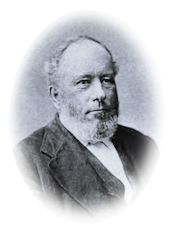Evacuation.
April 19. The steamer Thomas Collyer arrived last night, bringing dispatches of some kind, but just what we were unable to find out. This morning, however, the mystery was cleared up. The 12th New York battery was on the wharf, the 40th Massachusetts and the other detached companies were breaking camp, preparatory to going aboard the boat. This meant evacuation and going to the relief of Foster. The 25th of course is to be the last to leave, and we cast the last sad, lingering look on Plymouth. That is always our style; the first in and last out, and never lost a battle. But just here, the uncertainty of all things human is again illustrated. Just as the troops were aboard, the old Massasoit comes puffing up the river, bringing the welcome news that Foster has run the blockade and the order of evacuation is countermanded. Cheer after cheer rends the air, smiles light up every countenance and hope takes the place of despair. But won’t there be larks now, though? If there is anybody hanging around Washington who does not belong there, they had better be getting away.
Colonel Sisson.
It seems that after Spinola’s abortion and the troops’ return to Newbern, the brave Col. Sisson of the 5th Rhode Island was so disgusted with the whole thing that he proposed going with his regiment alone to Foster’s relief. He and his regiment went aboard the steamer Escort, and on the evening of the 13th, under cover of a heavy fire from the gunboats on the batteries at Hill’s Point, seven miles below Washington, he successfully ran the blockade, arriving at Washington with his troops and supplies. The next evening, with Gen. Foster aboard, he again ran the guantlet, landing the general safely in Newbern. But it is said the Escort looked like a pepper-box from the shot holes made in her while running the gauntlet. On this perilous trip only one man (the pilot) was killed. The little garrison at Washington held out bravely. It consisted of only eight companies of the 27th and the 44th Massachusetts regiments, two companies of the 1st North Carolina, one company of the 3d New York cavalry and one New York battery, aided by two or three gunboats on the river. Against this small force was opposed some 12,000 of the enemy as near as we can learn. After Gen. Foster got away they did not seem to care to wait for his return, but folded their tents and silently stole away.
